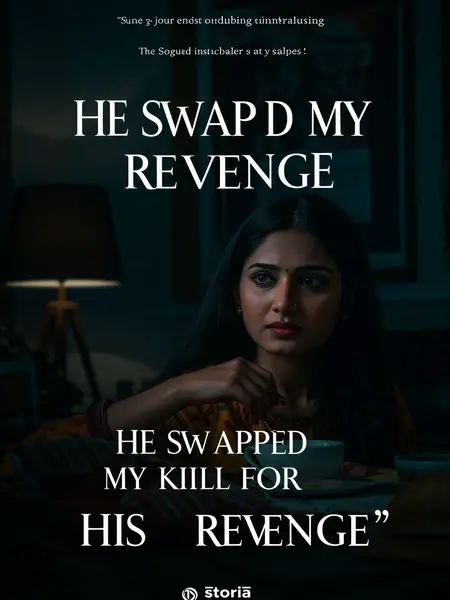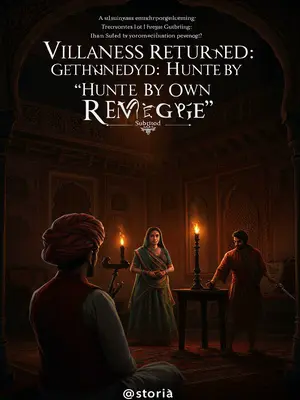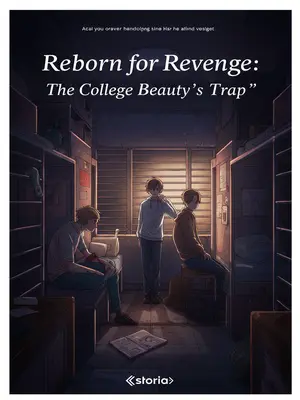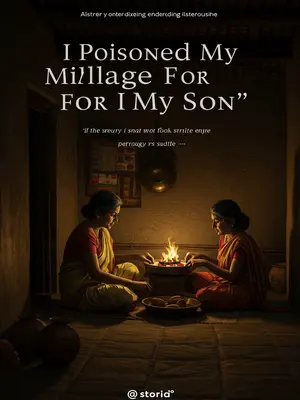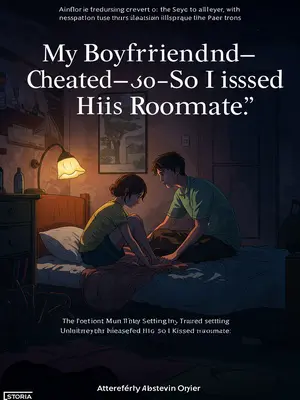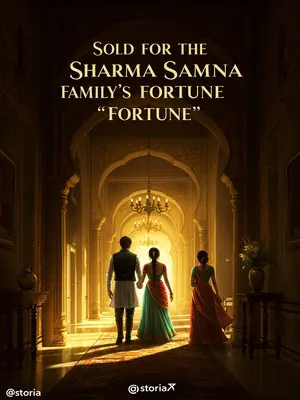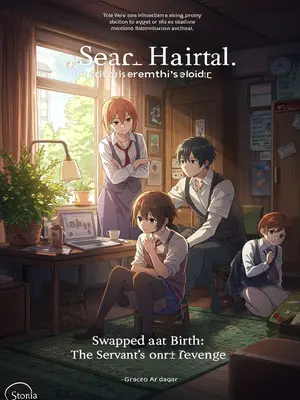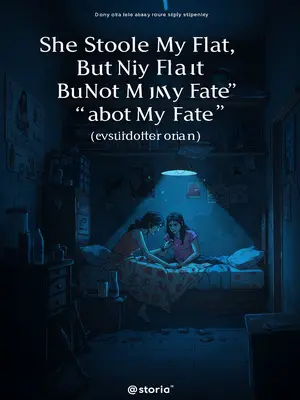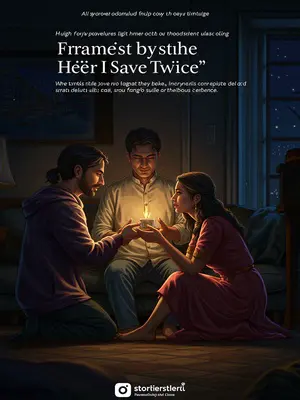Chapter 2: No Motive, No Clue
The entire crime branch team worked for days but found nothing.
People grew restless—media vans blocked the society gates, and the local MLA called the Commissioner twice, demanding results. Even my mother, who never asks about my work, muttered prayers for the dead every morning.
The Mehtras had a spotless reputation among relatives and friends.
They were the sort who lit diyas at Diwali for the whole society, brought sweets for Eid, and distributed prasad after pooja.
“Uncle Rohan was a good man. Last year, when my father was hospitalised and we had no money, he paid our bills.”
A cousin told us this, tears in her eyes. The respect people had for Dr. Mehra was obvious—a far cry from the usual whispers that follow such tragedies.
“Last year, my mother almost fell for a scam, but Aunty Ananya caught it. If not for her, we’d have lost over a lakh.”
Neighbours spoke of Ananya’s sharp eye and kindness. She was the unofficial secretary of the society, always the first to spot a new face or a suspicious knock at the door.
Their son Kabir was a model student—no romance, no bullying.
His teachers described him as “obedient, smart, always ready to help.” Even the school peon said, “Bachha accha tha, sir. Always said namaste.”
All 100-plus staff at Shanti Hospital were cleared of suspicion.
We spoke to everyone—doctors, nurses, ward boys. No one had a bad word for Dr. Mehra. “Saab was strict but fair,” said Rakesh, the night compounder. “Never shouted unless someone really messed up.”
After exchanging notes, Amit couldn’t help but sigh:
He looked like a man given a Sudoku with half the numbers missing. “Suresh bhai, is case ka toh koi sar-pair hi nahi mil raha.”
“Absolutely no clues. Even more of a headache than a locked-room murder.”
I nodded, thinking of the detective stories I’d loved as a child—except this was no story, and real lives were at stake.
“Their finances are normal, no major grudges. Medical disputes ruled out. Are we looking in the wrong place? Maybe it wasn’t revenge—maybe the killer is a psycho, and the violence and theft were just a cover?”
Amit’s logic was sound, but a nagging itch remained at the back of my mind, like when you know you’ve forgotten something. In India, even so-called random acts usually have a story behind them.
I frowned. That possibility couldn’t be ruled out, but if so, it would be even harder to catch the killer.
I took a deep breath, sweat beading on my forehead despite the AC. “If he’s just mad, Amit, we may never know why.”
We pored over the crime scene and CCTV again and again, but found nothing.
Late nights blurred into early mornings. Files, chai cups, and empty samosa plates littered the station. The city’s expectations pressed down on me, heavier than the monsoon clouds outside.
Until, a month later, a witness appeared.
Just as we were ready to give up, fate dropped a twist worthy of a Bollywood thriller. That morning, the news was full of wild theories when she walked in.
A woman, wrapped in sunglasses and a mask, entered the police station.
She kept twisting the strap of her faded purse, her eyes darting to the door every few seconds, as if she might bolt at any moment. These days, with the glare of social media and 24-hour news, even the bravest hesitate before coming to the police.
“Is your high reward for clues about the killer still valid? Will I still get the money if I talk now?”
Her voice was barely a whisper, the sort you use when you don’t want the aunty next door to overhear. She’d clearly rehearsed this question a hundred times before mustering the courage to enter.
I sat up and replied, “Yes, it’s valid. You’ll get it.”
I gestured for her to sit. Amit poured her water. She accepted the steel tumbler with both hands, as if it was a lifeline.
The witness was Priya Singh, twenty-four, a saleswoman at a food company. On September 13, there was a company promotion, so she worked late and didn’t leave until 2 a.m. Wanting to get home quickly, Priya took a shortcut she rarely used.
You know how it is—after a long day, all you want is to heat up some rajma chawal and collapse. But fate had other plans for Priya.
A drunken man saw her walking alone and followed her, intent on harm. When they reached a dark, unlit gali, he rushed up and grabbed her.
The city at 2 a.m. is another world—quiet, except for the odd rickshaw or barking dog. Priya’s voice faltered as she recalled, “I thought I was alone, but suddenly, I felt someone behind me.”
Priya was exhausted and hungry, with little strength to resist. She could only shout for help, but the lane was deserted.
Even the street dogs had vanished. Her cries echoed off the closed shutters, unheard.
Just as she was in despair, a man carrying a suitcase emerged from the shadows. He picked up a stone and smashed it on the drunkard’s head.
The silence broke with a sickening thud. Priya flinched as she relived it. “Woh aadmi… didn’t even look at me. Just… did what he had to.”
Priya trembled, twisting her purse strap. A WhatsApp ping buzzed somewhere in the station, briefly breaking the tension. I poured her more water. After a pause, she continued: “After knocking out the drunk, the man just walked away. I thanked him, but he ignored me. There was a strong smell of blood, but I was too scared to think.”
Her hand shook as she sipped from the steel tumbler. The metallic tang of blood and fear stayed with her—stronger than any stale samosa aftertaste.
I checked her records. The place she described was just a street from Lotus Residency. On the third day after the murder, police had checked the CCTV and asked her if she’d seen anything strange, but she said nothing.
In our rush to solve cases, we forget people have their own reasons for silence. Maybe she was scared, maybe she didn’t trust the police, maybe she just wanted to forget.
Priya said, “I didn’t want to get mixed up in a murder case, and he saved me. But now my grandmother is sick and I need the money. I swear, everything I’ve said is true.”
Her desperation was genuine—the kind that makes people do things they never would otherwise. In India, family comes first, and all it takes is a sick relative to change your mind.
The suitcase she described matched the one at the garbage dump, which contained the victims’ remains. The man she saw was the killer.
Suddenly, the clues clicked together like the last piece of a jigsaw finally clicking into place after hours of searching. The battered blue suitcase, the time, the place—it had to be him.
That night was the 13th to the 14th. The streetlights were broken, but the moon was bright. In that fleeting moment, Priya glimpsed the killer’s general appearance and a scar near his eye.
She closed her eyes, recalling every detail. “Uske aankh ke paas ek nishaan tha, sir. Ek bada sa scar.”
A police sketch artist created a portrait. Through database comparison, we quickly identified the suspect.
Within hours, the computers whirred to life. The sketch was run through every criminal database from Mumbai to Nagpur. Amit leaned forward, holding his breath. Finally—a match.
